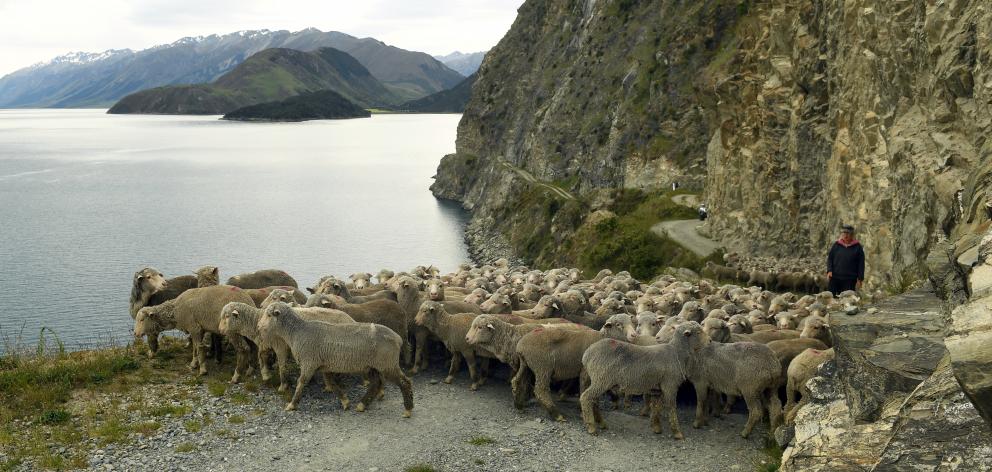
The New Zealand Merino Co's general manager for markets and sustainability was a finalist in the sustainability superstar category in the recent NZI Sustainable Business Network Awards.
The category, won by Waikato dairy farmer Tracy Brown, celebrated people who inspired and led others to make a difference.
Mr Maslen's own nomination came as a surprise and he was reluctant to be singled out, saying it was ``most definitely'' a team effort.
He left his former job at Environment Canterbury 12 years ago to join NZM, where his job was to manage the relationships between the company and its brand partners, and also connect between those brands and the company's growers.
Although he enjoyed his time at the regional council, the ability to bring about change within a regulatory framework was slow, he said.
He helped set up the ZQ accreditation programme. The impetus behind it concerned extracting greater value for growers while delivering meaningful, positive outcomes for the environment, animal welfare and social responsibility. It was that aspect that "kind of squealed my tyres'', he said.
When consumer markets were asking for, and willing to pay for, products produced in a certain way, then change could be effected if those markets were connected to growers.
ZQ was "on the whiteboard'' when Mr Maslen joined the company. Since then, he and his colleagues had pulled it together, launched and evolved it over time.
The programme had been adopted by more growers and now, probably, was the leading ethical wool supplier brand in the world, he believed.
It had been great to be part of and it and great NZM had had the vision to invest in it and, coupled with hard work by the company's growers and the foresight of brand partners, had made it successful.
Mr Maslen acknowledged the initiative probably was "a little bit ahead of its time'' and the challenge for NZM was to ensure that ZQ "stays ahead of the curve''.
Looking at what challenges lay ahead for the industry fed into the ZQ programme and became a vehicle for change, so it was a cycle of continual improvement. Everything it did was market driven.
NZM also transacted "significant'' volumes of crossbred wool and ZQ extended across that category.
It was a tough time for crossbred growers but the world was "hungry for natural fibre''.
Regardless of whether it was merino or crossbred, it was a biodegradable natural product that fitted the circular economy.
Wool had so many applications beyond just carpets, he said.
People were looking more closely at the products they used and the future for the industry was bright but a lot of work had to be done.
There had to be investment in product development and a deep understanding of what consumers were asking for. Without knowing what they wanted, nothing other than a commodity price could be expected, he said.
It was easy to be insular here. During his time at NZM, he had gained insights, globally, about the power of the way things were produced in New Zealand. Equally, there were significant risks should that perception ever be challenged.













